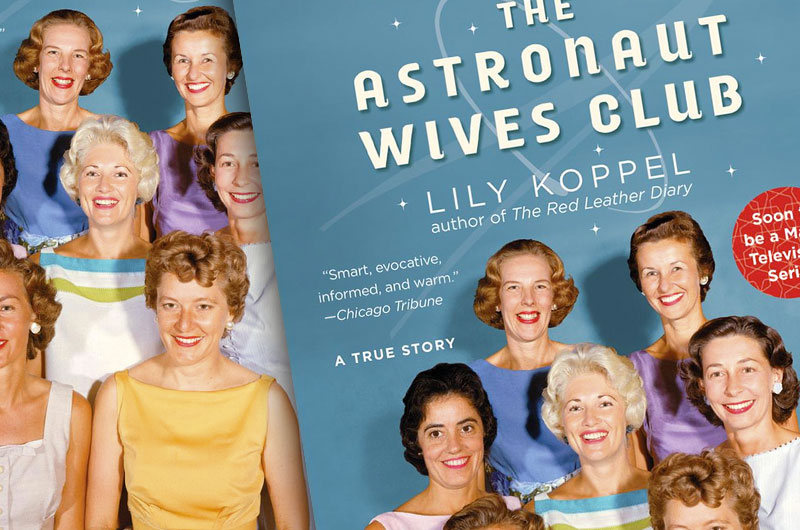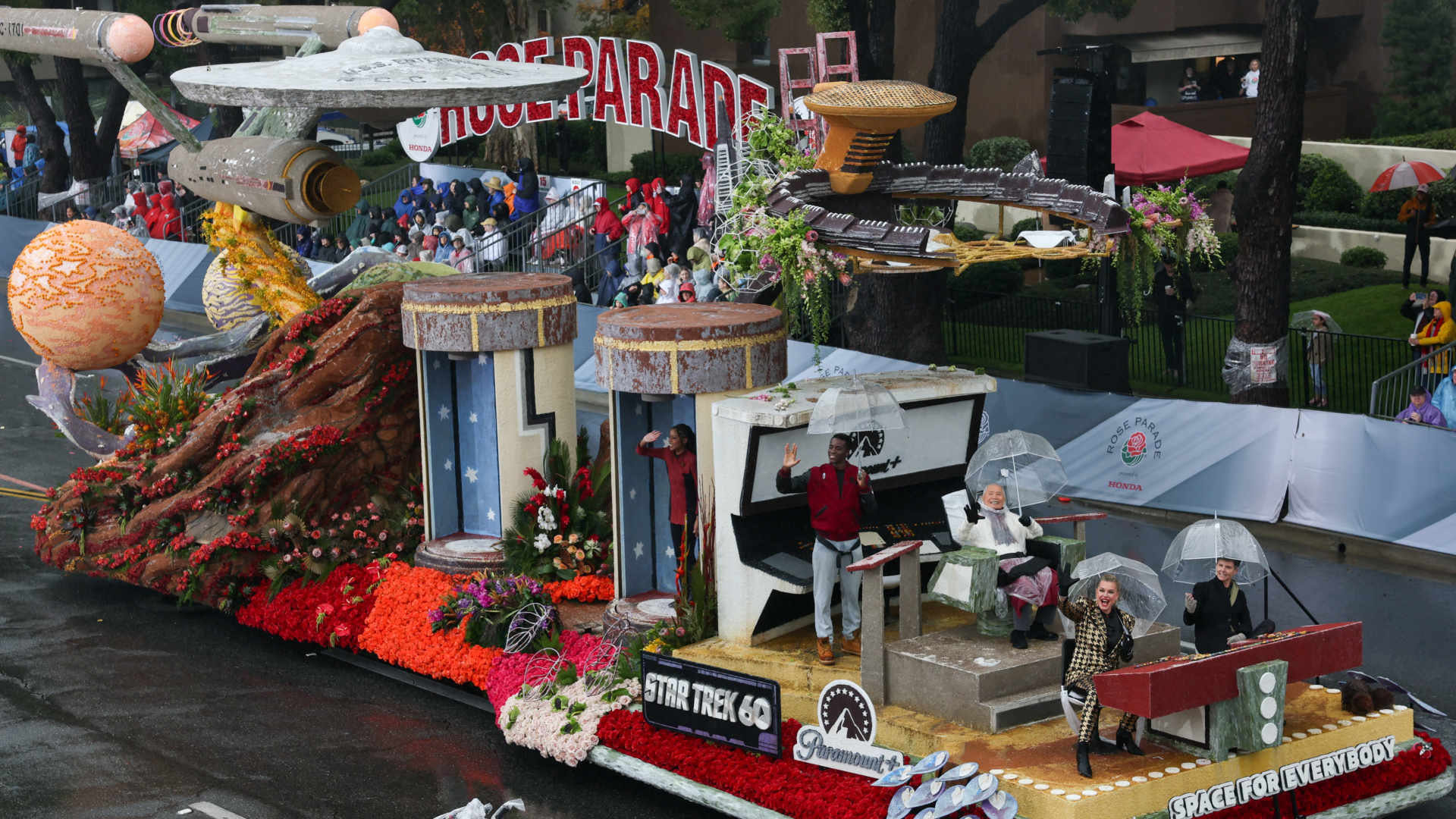'Astronaut Wives' Author Marks Book's 1st Year with New Softcover, TV Series

It's been a year since the launch of "The Astronaut Wives Club" and Lily Koppel is back in orbit.
The 33-year-old author, whose latest bestseller traces the spouses of America's spacemen through the 1960s space race, has again embarked on a tour promoting "The Astronaut Wives Club," this time for its paperback release by Grand Central Publishing.
The softcover, however, is only the latest development for Koppel and the "Astronaut Wives." As if inspiring themed parties with "retro-recipes" wasn't enough, the book is now the basis for a limited event television series to premiere on ABC next spring. [Read an excerpt from "The Astronaut Wives Club"]
collectSPACE.com caught up with Koppel as she embarked on her five-state book tour to discuss the new edition of "The Astronaut Wives Club" and the TV series it has sparked.
collectSPACE: The release of the softcover marks a year since "The Astronaut Wives Club" original release. Other than the television series (which we'll get to in a moment), can you share some of the highlights of the past year with regards to its reception? Any standout reactions?
Koppel: After the book came out, there were several book launch events — pun intended — but the party we had in Houston was particularly special because many of the wives still live there and attended, as did astronauts, socialites, and Joanne Herring (played by Julia Roberts in the 2007 movie "Charlie Wilson's War").
The jazz band played "Fly Me to the Moon." On the dance floor was Gene Cernan, known as the 'last man to walk on the moon.' I gave a speech and thanked all the wives, who were scattered around the room wearing yellow rose of Texas corsages, the astronaut wives' signature flower.
Breaking space news, the latest updates on rocket launches, skywatching events and more!
After I was done, Cernan asked for the mike. He first joked and said he was disappointed there was no "former husbands club" for him and his fellow astronaut buddies to join, but his voice faltered as he told the crowd, "If it were not for the wives who committed their lives to what we were doing, I don't think we would have ever gotten to the moon."
collectSPACE: Why do you feel the book has resonated the way it has with readers? Do you think your book's success and the popularity of movies like last year's "Gravity" point to a renewed interest in spaceflight and its history?
Koppel: In the Facebook-Twitter world, our horizons are reduced to this very little screen. Four decades ago, we were looking up at the moon.
I think movies like Gravity and The Astronaut Wives Club help us recapture the awe of space.
I believe The Astronaut Wives Club resonates so strongly with readers because it reveals the real lives behind the "perfect" astronaut wives, and peers behind the American myth of the hero to profile the spouses' tough times back on Earth.
Sometimes the most interesting, tantalizing stories are often those about women waiting in the wings of history.
"Stories of wives" as a kind of literature may hardly be seen as novelty anymore [but] in my opinion this topic generates peoples' interest because fifty years ago wives were not seen as important. They were arm-candy for the men, but today we can see them as "quiet" heroes in their own right. [See photos of NASA's Apollo mission]
collectSPACE: Were there any changes or additions made to the book for the softcover edition?
Koppel: "The Astronaut Wives Club" is a book club pick, so there's an expanded Reading Group Guide for the paperback. It includes book club questions and an author conversation, and also about half a dozen more photos.
Also I wrote a postscript essay on reconnecting with many of the wives and their children following the publication of the book.
Finally there's a section on planning an Astronaut Wives Club-themed book club night, including a few retro-recipes for desserts (and a Mount Marilyn Martini, too).
collectSPACE: You're back on tour just as the authorized biography about Sally Ride, America's first woman in space, hits bookstore shelves. Can you contrast the two stories – the astronauts' wives with the introduction of the first women into NASA's astronaut corps?
Koppel: [Cosmonaut] Valentina Tereshkova was the first woman to fly in space in 1963. Why was the first American woman Sally Ride in space was sent only 20 years later? What does it say about social atmosphere of America in 1950s, 1960s and 1970s?
These were all questions that concerned me while I wrote The Astronaut Wives Club. It was certainly reflective of the times. In the 1950s, American women were excluded from the decision making process. They were supposed to stay at home, run the house and raise children.
When I asked one of the most progressive wives, who later hosted her own feminist talk show in Washington, DC, Rene Carpenter, she said she and Annie Glenn totally agreed that it should be all male at the beginning.
They wondered, "How would women go to the bathroom comfortably, what about their periods?" It was a different world back then for women.
Continue reading collectSPACE’s interview to learn about the TV series and whether Lily Koppel will play an astronaut wife.
For more about "The Astronaut Wives Club," the softcover release and TV series, see the book's website at: astronautwivesclub.com.
Follow collectSPACE.com on Facebook and on Twitter at @collectSPACE. Copyright 2014 collectSPACE.com. All rights reserved.

Robert Pearlman is a space historian, journalist and the founder and editor of collectSPACE.com, a daily news publication and community devoted to space history with a particular focus on how and where space exploration intersects with pop culture. Pearlman is also a contributing writer for Space.com and co-author of "Space Stations: The Art, Science, and Reality of Working in Space” published by Smithsonian Books in 2018.
In 2009, he was inducted into the U.S. Space Camp Hall of Fame in Huntsville, Alabama. In 2021, he was honored by the American Astronautical Society with the Ordway Award for Sustained Excellence in Spaceflight History. In 2023, the National Space Club Florida Committee recognized Pearlman with the Kolcum News and Communications Award for excellence in telling the space story along the Space Coast and throughout the world.


